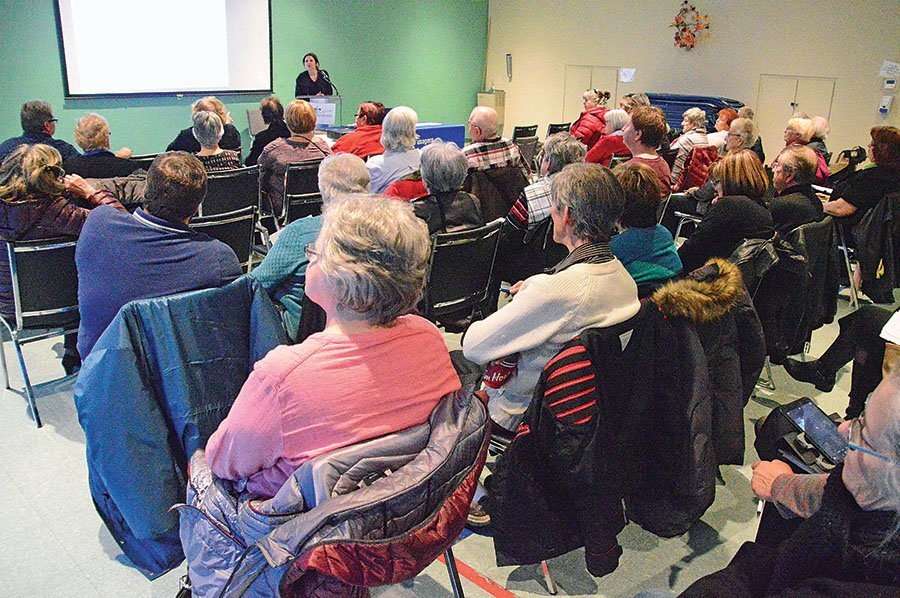
Martin C. Barry
Make no mistake about it, says Julia Garzon.
Despite her calling as a legal defender for medical patients who feel they’ve become victims within Quebec’s public health care system, she’s no “Erin Brockovitch.”
Defending system’s users
For their April 17 free lecture presentation, more than 70 supporters and members of the Comité des usagers du CSSS de Laval welcomed Me Garzon, a crusading young lawyer whose employer, Laval-based Ménard Martin, is well-known for its legal defence of users of Quebec’s public health care system.
While Me Jean-Pierre Ménard, who is the leading partner of the firm, was initially scheduled to make the presentation, a health problem forced him to cancel and Me Garzon made the presentation in his place.

She’s no Erin Brockovitch
Erin Brockovitch was a year 2000 movie starring Julia Roberts, telling the true story of a lawyer in the U.S. who became known for her legal activism pitting individuals against major corporate interests. But to hear Garzon talk about her work, it sounds more like it involves little glamour and a lot of very demanding legal research.
“I get a call,” said Garzon, recounting a fairly typical interaction with a potential new client. “She says to me ‘Are you like Erin Brockovitch? Can you do anything for me?’” But while Garzon makes clear that she and other lawyers at the firm always return calls within 24 – 48 hours and that initial contact is free of charge, she also eventually has to establish that building a medical malpractice lawsuit is costly and time-consuming and heroic scenarios are mostly in the movies.
Costs for legal procedures
For example, it costs $325 to meet with her just once for an initial consultation, with no obligation after that if that’s how the client feels. However, if the client decides to proceed further, the cost to analyze the dossier ranges from $2,500 to $5,000. After that, legal fees can grow, but only if the law firm and its expert consultants have determined that a complainant has grounds to justify pursuing the matter further legally.
However, as Garzon pointed out in her lengthy presentation, there are many channels in Quebec for obtaining redress whenever someone feels they’ve been treated improperly or unfairly in the province’s health care system.
Complaints committees
Apart from civil law procedures, there are also complaints committees set up within all Quebec health care establishments. But while Garzon’s legal firm pursues legal cases seeking monetary compensation for medical mistakes and oversights on an almost day-by-day basis, the complaints committees function primarily as a means of rectifying errors and problems inside the medical and social services systems, without offering users an option to seek compensation.
“What is important to note about the complaints to establishments is that the goal of the commissioner for complaints is to issue recommendations,” she said. “These recommendations are not mandatory and there is no legal force to oblige the adoption of these recommendations. Also with regard to complaints to establishments, there is no possibility of seeking financial compensation.”
Different ways of proceeding
Garzon pointed out that once a health care service user has officially deposited a complaint, “this does not prevent him from also seeking recourse legally.” She also maintained that once a complaint has been formally deposited, the clock doesn’t stop. This differs from the situation with malpractice lawsuits in which there are time limitations.
According to Pierre Lynch, president of the Comité des usagers du CSSS de Laval, the committee holds free lecture presentations each month, always dealing with issues concerning the rights of public health service users. “We deal with different aspects of the rights issues in health,” he said. The Comité des usagers du CSSS de Laval holds its monthly gatherings at Place des aînés in Chomedey.














